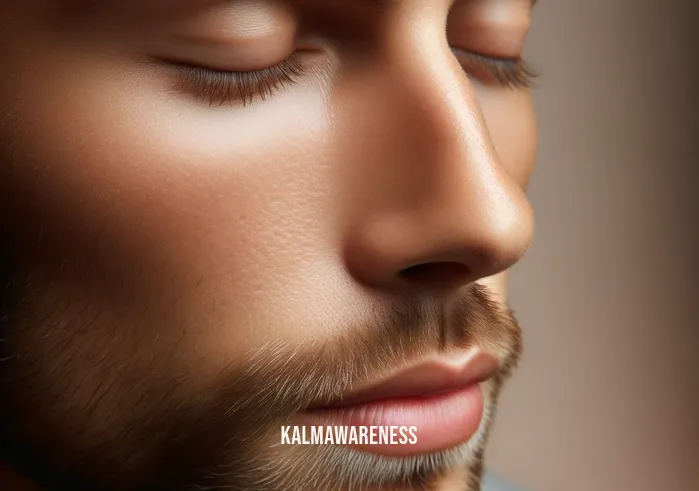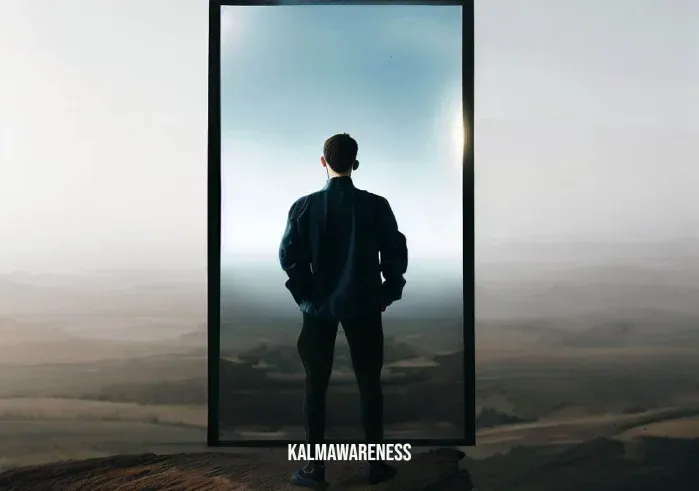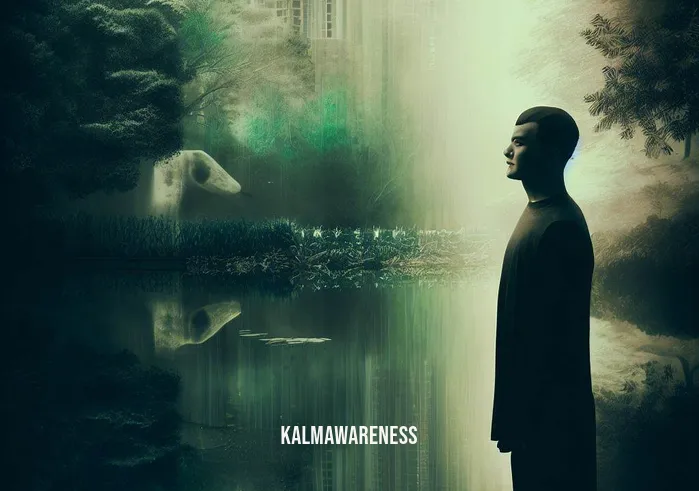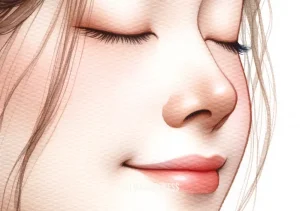Can You Meditate While Drunk? Exploring Meditation and Alcohol
Meditation, a centuries-old practice, is known to enhance mindfulness, relaxation, and awareness. In our fast-paced world, it’s no wonder that countless individuals turn to meditation for its manifold benefits, seeking solace in the quiet moments of introspective stillness. But when the haze of alcohol blurs one’s consciousness, can meditation still serve its purpose? The question, “can you meditate while drunk,” is not just a matter of practicality but delves into the deeper realms of health, well-being, and the essence of meditation itself.
The Essence of Meditation
To answer our core question, we must first understand what meditation truly represents. Meditation is often described as a state where one involves attaining a peaceful state of mind in which thoughts are not occupied by worry. It’s an act of mindfulness, where every inhalation and exhalation becomes an anchor, grounding the practitioner in the present moment.
Some practices, like EMDR meditation, have been designed to help individuals process traumatic memories and experiences, while techniques like mirror gazing offer spiritual benefits that connect the soul to higher realms of consciousness.
Alcohol and Awareness
Alcohol, on the other hand, is known to impair judgment, alter perception, and influence behavior. It affects our central nervous system and creates a sense of relaxation. But this relaxation is different from the calm experienced during meditation. The question then arises: with alcohol inducing a pseudo-relaxation, how does it impact the element of some meditation exercises?
The simple act of mindful movement before sleep, for instance, requires a degree of balance and concentration. Under the influence of alcohol, such activities might not yield the desired results.
Why Combine the Two?
The intrigue surrounding the combination of meditation and alcohol stems from our human nature to experiment and find synergies in opposing forces. Some might wonder if the relaxing effects of alcohol could potentially amplify the tranquility achieved through practices like mindful hypnobirthing or the centeredness explored in Jack Kornfield’s meditation for beginners.
However, one must keep in mind the definition and purpose of meditation. It’s a path to achieving heightened awareness, which alcohol might inhibit.
Health and Well-being Considerations
From a health perspective, combining alcohol with meditation might not be advisable. While techniques such as Rouse yoga promote physical and mental wellness, introducing alcohol could counteract these benefits. The essence of sustainable self-care involves practices that nourish our body, mind, and spirit without introducing potentially harmful substances.
Furthermore, alcohol’s diuretic properties might disrupt extended meditation sessions, especially if one opts to meditate lying down.
Setting the Stage for Further Exploration
As we delve deeper into this topic in the upcoming segments, we will explore the scientific, spiritual, and practical implications of meditating under the influence of alcohol. How does alcohol impact our neural pathways? Can it genuinely aid in achieving deeper states of meditation, or does it merely create an illusion of depth?
We will also investigate how different meditation techniques, from the simplicity encapsulated in Meditation Made Simple to the resonance of 256 Hz benefits, interact with the state of inebriation.
To truly understand the relationship between meditation and alcohol, it is essential to explore both from various perspectives. By doing so, we hope to provide a comprehensive understanding, helping practitioners make informed decisions about their meditation journey.
We’ve only scratched the surface of this intriguing topic. For a deeper dive and more insights, continue reading in the next segment.

The Science Behind Alcohol and Meditation: Unveiling the Myths
Understanding the intricacies of how alcohol affects our system and its implications on the meditation process is crucial. The subject “can you meditate while drunk” isn’t just a whimsical query but delves into the depth of our neural pathways, cognitive processing, and the true essence of meditation. Let’s unravel the science behind this and understand the potential synergies or conflicts.
Alcohol’s Impact on the Brain
Alcohol acts as a central nervous system depressant. While it might offer temporary relaxation, it primarily slows down brain activity and alters the chemical balance. This impacts our:
- Memory
- Concentration
- Reaction times
- Judgment
This poses the question: can one achieve genuine mindfulness and judgement of the wise when the brain’s natural function is compromised?
Different Meditation Techniques and Alcohol’s Influence
Several meditation techniques aim at achieving varied results. But how does alcohol influence them?
Guided Imagery: Visualization and imagination are key. Under the influence of alcohol, the mind might wander more, and visualization can become clouded or even surreal.
Mantra-based Meditation: Repeating a specific word or phrase, like explored in one for each blessed day, might become challenging with slurred speech or a wandering mind due to alcohol.
Moving Meditation: Techniques such as teenagers walking demand coordination. Alcohol can disrupt balance and physical coordination, making this type of meditation less effective.
Reflective Practices: Deep contemplation, as seen in practices which touch that body part for healing, can be clouded by impaired judgment.
Table: Alcohol and Meditation – A Quick Overview
| Meditation Technique | Primary Focus | Impact of Alcohol |
|---|---|---|
| Guided Imagery | Visualization | Clouded/Surreal Images |
| Mantra-based Meditation | Concentration on Word/Phrase | Difficulty in Repetition |
| Moving Meditation | Physical Coordination | Reduced Balance |
| Reflective Practices | Deep Contemplation | Impaired Judgment |
| Breath-based Techniques | Breath Awareness | Shallow Breathing |
Why the Question Matters: Can You Meditate While Drunk?
The very essence of meditation is to achieve a heightened state of awareness, relaxation, and connection to one’s inner self. Introducing alcohol to this equation can deter many of these objectives. From the table above, it’s evident that alcohol can profoundly impact the outcome of meditation practices.
Moreover, meditation is not just about the act itself but the aftereffects – the lingering sense of calm, the clarity of thought, and the rejuvenated energy. Alcohol, on the other hand, might leave one with a hangover, a sense of regret, or even memory blackouts.
Navigating the Crossroads
While it’s essential to understand the implications, it’s equally important to respect individual choices. Some might find a glass of wine relaxing and feel it aids their meditation process, while others might find it a hindrance. The key lies in self-awareness and understanding the purpose behind your meditation.
As we journey further, we’ll delve into personal experiences and anecdotes, offering a more holistic view. From practitioners who’ve tried combining the two to experts who warn against it, the next chapter promises a mosaic of insights.
Eager to explore further? The intricacies of this debate are both intriguing and enlightening. Continue reading in the next segment to uncover more.
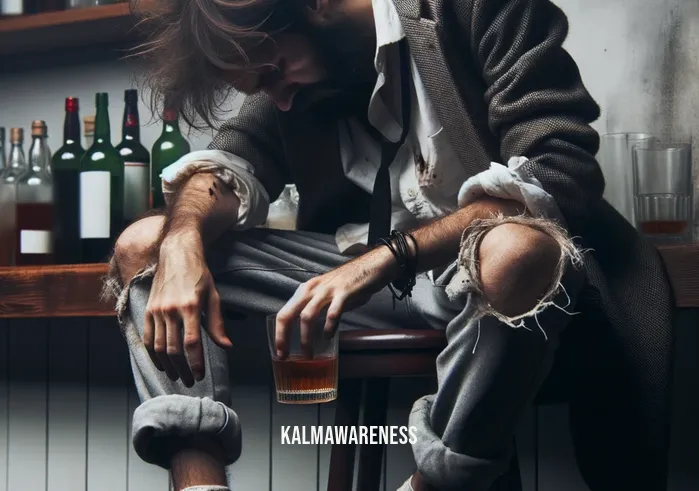
The Heartfelt Chronicles: Stories of Hope Amidst Alcohol and Meditation
At the intersection of alcohol and meditation lies a myriad of stories—some of hope, others of caution, and a few that inspire transformation. As we continue to delve deeper into the question, “can you meditate while drunk?”, it’s paramount to hear from those who’ve journeyed this path. Through their tales, we uncover valuable insights, paving our way toward informed decisions.
Mark’s Journey: Seeking Calm in Chaos
Mark was a finance professional caught in the relentless hustle of Wall Street. For him, wine was a nightly escape. While it brought temporary solace, the stresses of the day would often return with vengeance. Enter meditation. He stumbled upon how to spell stabilize and sought stability in its teachings. The mix of alcohol and meditation, however, wasn’t always harmonious.
“In vino veritas, in silence peace. But combining the two often led to an unsettled spirit.” – Mark
Sophia’s Tale: From Wine to Wholeness
Sophia, a single mother, found her evenings overwhelmed with responsibilities and a glass of wine in hand. Meditation, especially techniques she learned from meditation made simple, became her refuge. Unlike Mark, Sophia felt that a little wine opened her up, making her meditation sessions more profound.
“A sip of wine opened the door, but meditation allowed me to walk through it. It’s about finding your balance.” – Sophia
Rahul’s Transformation: EMDR Meditation and its Role
Rahul, a PTSD survivor, found solace in EMDR meditation. His therapist suggested it as a coping mechanism. Initially, Rahul would sip on beer to ease into the process. However, he soon realized the power of pure, unadulterated meditation.
“Beer made the initial steps easier. But pure meditation? It’s like the universe echoing back, offering a deeper healing.” – Rahul
The Crossroads: Perspectives from the Wise
Meditation expert, Lillian, who has taught countless students including those using Jack Kornfield meditation for beginners, offers her perspective:
“Alcohol might seem like a doorway to relaxation, but true mindfulness requires clarity. The two, when mixed, can muddy the waters of your consciousness.”
Lillian’s views echo the sentiments of many meditation purists. Yet, she understands the allure of using alcohol as a bridge. Her advice? Seek sustainable self-care. Meditation is a journey, not a destination, and every individual must find their own path.
Why These Stories Matter
Beyond the science and research, it’s these personal tales that breathe life into our understanding. They offer:
A Glimpse into Real Experiences: No two individuals will have the same journey. Understanding diverse experiences provides a comprehensive view.
Hope in Adversity: Real-life tales instill hope and offer avenues for those struggling with their own meditation and alcohol journey.
Inspiration for the Future: They serve as a reminder that change is possible and that with awareness, one can find their unique balance.
In the vast expanse of the meditation realm, understanding the intricacies of alcohol’s role is pivotal. As we progress, our next segment will bring experts to the forefront, diving into professional advice and guidance. Ready to unravel more profound insights from those at the helm of meditation teaching? Join us in the next chapter for a rendezvous with the masters.

Decoding the Meditation-Alcohol Matrix
When diving into the heart of the matter—can you meditate while drunk—it’s crucial to break down the complexities surrounding this question. By dissecting the various facets, we can equip ourselves with a more informed perspective. Let’s embark on this insightful journey, employing bullet points and lists to guide us through the labyrinth of meditation and alcohol.
Benefits of Meditation
- Mental Clarity: A primary goal of meditation is to attain mental clarity, enabling us to process thoughts with ease.
- Emotional Balance: Through meditation, we harness the power to regulate our emotions, promoting a state of equilibrium.
- Mind-Body Connection: Engaging in practices like mindful movement sleep ensures a harmonious relationship between the mind and body.
- Enhanced Awareness: Meditation elevates our awareness, often highlighted in practices such as touch that body part.
- Spiritual Growth: Techniques such as mirror gazing spiritual benefits connect us to our higher selves.
The Impact of Alcohol on the Mind and Body
- Mental Fog: Alcohol can induce a haze, obstructing our ability to think clearly.
- Emotional Fluctuations: It can heighten emotions, leading to extreme joy, sadness, or even anger.
- Physical Sluggishness: Excessive consumption leads to physical exhaustion, hampering any activities, including meditation.
- Reduced Awareness: Alcohol can diminish our sense of awareness, contrasting the heightened mindfulness cultivated by practices like rouse yoga.
- Temporary Escape: While it might offer temporary relief, alcohol doesn’t resolve underlying issues.
Weighing the Two: Can You Truly Meditate While Drunk?
- Contrasting Goals: As seen from the above lists, the objectives of meditation and the effects of alcohol seem diametrically opposed.
- Short-term vs. Long-term: While alcohol offers short-term relief, meditation is a long-term solution to many of life’s challenges.
- The Role of Intention: The outcome might significantly depend on the intent. Someone using alcohol as a crutch might find meditation challenging, while another using it sparingly could potentially combine the two, albeit cautiously.
Tips for Those Considering Combining the Two
- Be Mindful of Quantities: If you do choose to drink, be moderate. It’s essential to keep in mind definition that overindulgence can counteract meditation’s benefits.
- Space it Out: Instead of meditating immediately after drinking, give your body time to metabolize the alcohol.
- Experiment in a Safe Environment: Ensure you’re in a comfortable and secure setting, free from potential harm.
- Stay Hydrated: Drinking water can help in diluting the effects of alcohol, allowing for a clearer mind during meditation.
- Seek Guidance: If in doubt, reach out to experts or meditation instructors for advice.
In our exploration of “can you meditate while drunk”, it becomes evident that while there are distinct benefits to meditation, alcohol brings with it a set of challenges. The intersection of the two demands careful consideration, tailored to individual needs and circumstances.
As we approach the culmination of our journey, our final chapter will synthesize the insights gleaned, offering holistic conclusions. The crux of our inquiry awaits in the next chapter, ensuring a comprehensive understanding of this intriguing interplay. Join us as we bring all pieces of the puzzle together.
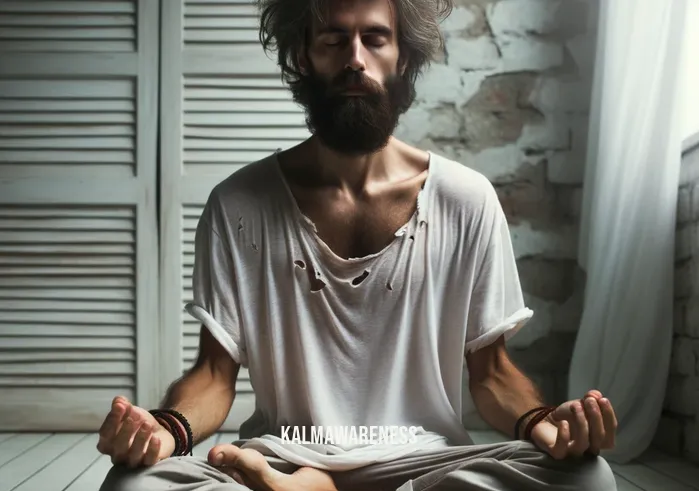
Reflections on Meditation and Intoxication
As we wrap up our deep dive into the intriguing subject of “can you meditate while drunk”, it’s an opportune moment to reflect on the insights gathered and the avenues explored. The intersection of meditation—a tool for self-awareness, grounding, and tranquility—with the effects of alcohol offers a rich tapestry of complexities.
The Heart of the Matter
Understanding the profound benefits of meditation, from its role in sustainable self-care to the tranquility brought about by attaining a peaceful state of mind in which thoughts are not occupied by worry, emphasizes the essence of mindfulness. On the other hand, alcohol’s fleeting escape stands in stark contrast to the enduring serenity that meditation promises.
Bridging the Gap
While at first glance, alcohol and meditation seem at odds, our journey has revealed nuances. It’s not about taking a rigid stance but understanding individual circumstances. For instance, knowing when to practice meditation, like exploring the calming effects of meditating while lying down after moderate alcohol intake, could be beneficial for some.
A Tapestry of Learnings
Our exploration was not just about juxtaposition but about finding harmony. Like the element of some meditation exercises, understanding oneself is paramount. By recognizing our personal relationship with both meditation and alcohol, we can navigate the waters with clarity and purpose.
A Toast to Continuous Exploration
It’s been a rewarding journey, illuminating the myriad facets of our central query. However, like all great explorations, this one also invites more questions, more contemplations. For those curious souls eager to delve deeper, our magazine offers a trove of articles, from understanding the judgement of the wise to exploring the nuances of how we get deep so fast in various practices. Revisit the previous chapters or embark on a new quest; the world of mindful exploration awaits.
To our dedicated readers, a heartfelt thank you for accompanying us on this journey. As we continue to weave together insights and wisdom, we’re excited about the myriad of topics awaiting exploration in our future editions. Until then, let’s remain curious, open-minded, and ever in pursuit of understanding.
Here’s to mindfulness, self-discovery, and many more enlightening journeys ahead!
